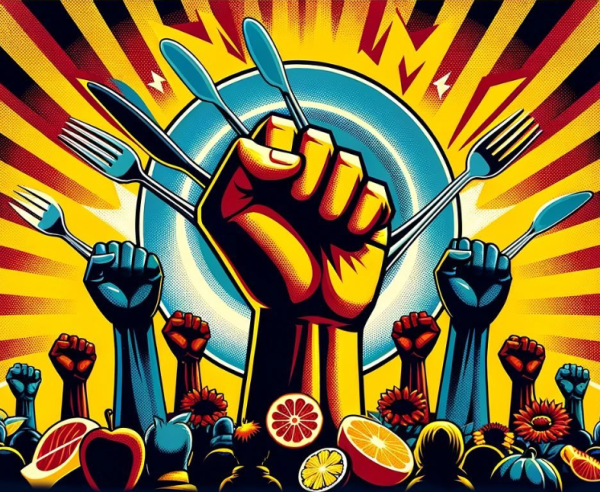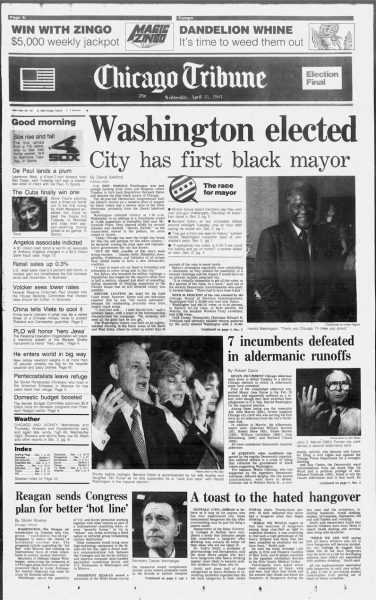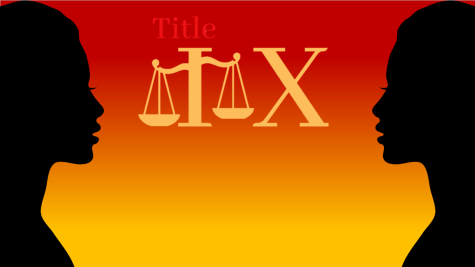Pizza and Policy: Reproductive rights in the post-Roe era

The Culver Center held its annual Pizza and Policy event on November 29 with the Pre-Law Society.
December 7, 2022
Over 30 students attended the annual ‘Pizza and Policy’ event held by the Culver Public Policy Center and the Pre-Law Society to hear experts speak on reproductive rights in a post-Roe era on Nov. 29.
The event featured Professor Mark Kende, the director of the Drake Constitutional Law Center and Karen Kedrowski, a political science professor and the director of the Carrie Chapman Catt Center for Women in Politics at Iowa State University.
Both spoke about the issues that have arisen since Roe v. Wade was overturned back in June and how politics come into play while affecting women in Iowa and across the nation.
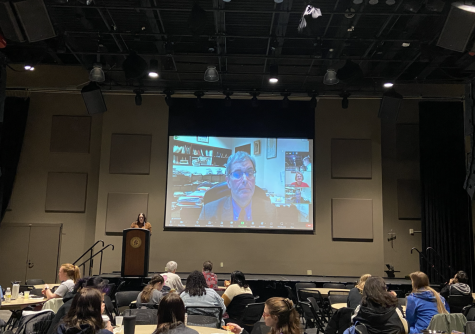
Professor Mark Kende spoke on how the Supreme Court decided that the previously established right to abortion would be overturned.
“Dobbs is a reflection of what you get when you have a Supreme Court that is determined to use a form of what’s called originalism, in the form of constitutional interpretation, that looks at what people who wrote the constitutional amendments either attended or met,” Kende said. “What you get when that happens because a court that looks backwards, and that’s when you get Dobbs. You get a court it takes over, and, historically, this is virtually unprecedented.”
Kende emphasized the repercussions of this unprecedented ruling betraying six previous rulings of abortion rights, leaving the decision of the Supreme Court to be one of high contention, especially because women’s rights are on the line in a way they have not been since before abortion was a guaranteed right back in the ruling of Roe v. Wade in 1973.
“The concern about the fetus is certainly some of the agenda, but you would think that the traction was good in terms of affecting the rights of women, who receive much more attention, in fact, pretty much sticks with the text of the Constitution and history as the diagnosis,” Kende said. “But this ignores modern and practical consequences of taking away this right from women.”
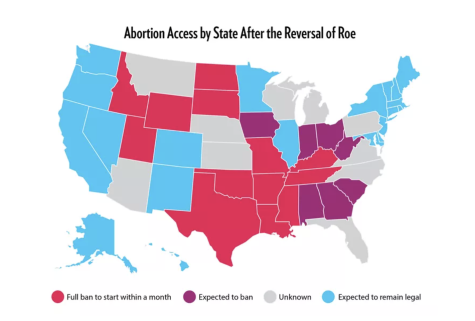
With this court ruling, abortion has become a hot-button topic that affects over half of the population in the U.S., and accessibility has come into question. Karen Kedrowski said that there are 16 states where abortion is banned and only 24 states where abortion is legal. The remaining 10 states are where abortion is currently legal, yet the future is uncertain of future legality. Iowa is one of the states in question.
Iowa’s current abortion policies are as follows:
- Mandatory counseling, ultrasound and a 24-hour wait period
- Abortions after 20 weeks only when life is endangered or “severely compromised physical health”
- Required parental notification for minors
- Public funding only for cases of rape, incest, life endangerment or severe fetal anomaly
- Governor’s permission is required for Medicaid-funded abortions
For the states in which abortion currently remains legal, these policies are bordering on the edge of abortions being banned. States like Minnesota and Illinois will become a safe haven for Iowans and other Midwesterners that desire or need an abortion.
“It means that anybody who interprets the Constitution could determine the number of rights. So this past state legislature in 2020 is likely to pass again in 2023 or 2024. If that’s the case, it would be on the ballot as a popular referendum in 2024,” Kendrowski said. “This is definitely a hotly debated issue.”
Sophomore Iliana Murphy, a double major in political science and history, said she felt horrified when Roe v. Wade was overturned. “For the first time in history, the Supreme Court took away a right it granted,” Murphy said.
Both speakers noted that other rights, such as same-sex marriage, could also be at risk with the precedent this court ruling sets.
“I personally am horrified of the implications it has on other rights being infringed upon as well,” Murphy said. “I think the speakers did an amazing job explaining how the decision was made and how it now affects Iowans.”








